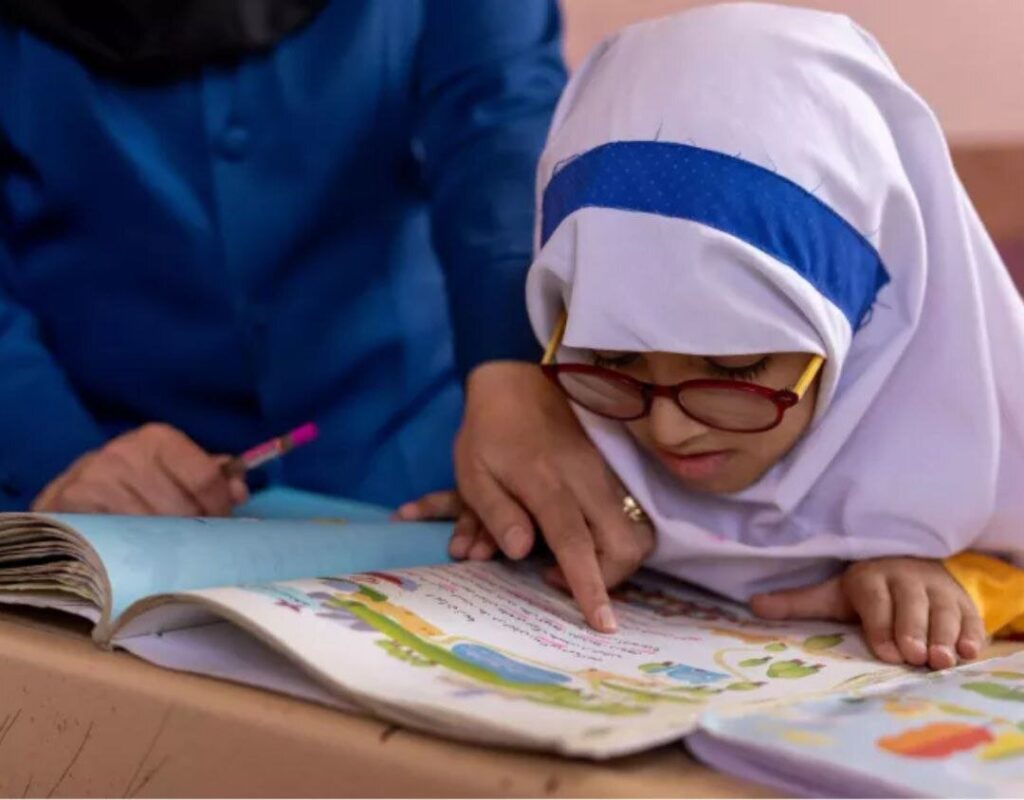Tehran – Recognizing the important role of early learning, especially in times of crisis, Iran’s Red Crescent Association (IRCS) and the United Nations Children’s Fund (UNICEF) have held national training workshops to ensure that children are not left behind even in emergencies.
In disaster-prone regions like Iran, access to quality early childhood education (ECE) is not just a developmental necessity, it is a lifeline.
Iran ranks as Asia’s fourth most disaster-prone country, after China, India and Bangladesh. The frequency of natural disasters, from floods and earthquakes to droughts, has made it important to prioritize preparation and resilience from an early age. However, UNICEF’s website, announced in a press release on May 5th, is often suspended for the first time in emergencies.
The training workshop was held at Bandarenzari from December 14th to 16th, 2024. 270 IRCS volunteers from across the country, including ECE teachers, school principals and Sahar team members (IRCS psychosocial support workforce).
The training focused on comprehensive early childhood education in emergency preparedness and response, and equipped participants with essential knowledge and practical tools for disability inclusion, child protection, child communication, and psychosocial support.
“Quality early childhood education is the foundation of children’s development,” said an Iranian spokesman for UNICEF. “In emergencies, these services are even more essential to providing stability, learning and safety to young children. This initiative is to ensure that all children, including children with disabilities, have access to a nurturing and inclusive learning environment, even in the most challenging times.”
Designed in 2024, the program aims to build a national executive of trained educators ready to support children before, during and after an emergency. A focus on inclusion will ensure that children with disabilities receive the attention and care they deserve.
Looking ahead, UNICEF and IRCS will redesign their training programs based on participants’ feedback and specific needs. The new phase will focus on informal community-based ECE services, reaching the most vulnerable children in underserved areas and remote villages.
This joint initiative reaffirms UNICEF’s commitment to providing education to everyone everywhere, even when disasters occur. Because every child deserves a safe start and opportunity to learn, regardless of the situation.
Recent cooperation
In December 2024, IRCS and UNICEF organized workshops to support children’s mental health through games.
The workshop entitled “Structured Play, Games In Child-Friendly Spaces” took place from November 16th to 20th at Bushehr, southern Iran.
This interactive event was part of the Joint UNICEF work plan aimed at empowering IRCS Psychosocial Support (SAHAR) Master Trainers with modern concepts and tools to support children’s mental health and psychosocial welfare through structured play in a humanitarian environment.
The IRCS Sahar team is responsible for providing mental health and psychosocial support (MHPS) to communities and children affected in a humanitarian context.
The workshop brought together 49 Saharmaster trainers and young volunteers from all over Iran to explore the impact of the structured play.
This practical training underscored the importance of structured play in promoting children’s mental health and psychosocial well-being. Participants engaged in a variety of activities designed to demonstrate the therapeutic benefits of play and develop practical skills for field work.
UNICEF is committed to supporting the IRC to enhance its ability to integrate structured play into the MHPSS program, ensuring that children in humanitarian settings receive the support they need to overcome adversity and build resilience.
In August 2024, IRCS collaborated with UNICEF to hold a workshop on the IRCS Psychosocial Support Team to enhance capacity in emergencies (equipment) “ensure quality of psychosocial and mental health care and support.”
The workshop was held from August 18th to 20th in Mashhad, Khorasan Razavi province. A total of 35 national master trainers from IRCS Sahar were participating in the workshop, UNICEF announced in a press release on August 28th.
The IRCS Sahar team is made up of volunteers trained to provide MHPS following disasters.
We will assist Sahar Master Trainers in planning and implementing volunteer training and supervision for the Sahar team.
Improved skills and capabilities lead to more children, adolescents and their families receiving effective and safe mental health services in emergencies, and more children, adolescents and their families.
mt/mg

